The Second Ted Talk  Every time I watch a Ted Talk, I am always left awestruck. They really are incredible. I was very engaged in this particular talk because it dealt with one of my favorite subjects: behavioral economics. The speaker stated that human behavior is incredibly susceptible to being controlled by outside stimuli. This may seem like mind control, conspiracy theory wackiness, but its not anything too crazy, he is just implying that subtle factors might have more of an influence than we think. My mind was literally blown when the speaker pulled out the Economist example. When offered an undesirable option, the vast majority of the sample selected the option that was predetermined by the author of the survey. I think this theory applies to Oedipus very well because of the prophecy. His family was warned what his outcome would be, but their efforts to avoid it were in fact what lead the predetermined events to happen. When Oedipus's parents hear of his fate, they exile him. It is because he is exiled that he fails to realize who his mother is. When he meets Jocasta later in life, he has no idea he is fulfilling the prophecy. Even though he thinks at the time that he is behaving of his own free will, he is in reality just acting out a long series of predetermined events. Behavioral economists are attempting to us a different kind of predetermination. They are trying to exploit the way they know the human brain will act in different scenarios. They are using the brain to sell their products. I just want to reiterate, my mind is frequently blown when I read or watch behavioral economics.
My analysis of Tragedy and the Common Man by Arthur Miller 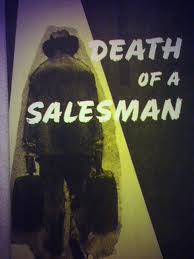 Tragedy is almost always written about royalty, so that is its target audience. A lot of people hold this misconception about tragedy. Hamlet, Oedipus, MacBeth, and many of the other iconic tragedies center their stories around the social elite. These kings and queens face problems in their lives, so naturally one must be royalty to empathize with them and enjoy their story . Arthur Miller, the author of such modern masterpieces as Death of a Salesmen, thinks that this notion is ridiculous. He thinks that tragedy is defined by the desire of the main character to reach the place he belongs in society. This is a desire that is present in many people, not just royalty. "I believe that the common man is as apt a subject for tragedy in its highest sense as kings were. On the face of it this ought to be obvious in the light of modern psychiatry, which bases its analysis upon classic formulations, such as the Oedipus and Orestes complexes, for instance, which were enacted by royal beings, but which apply to everyone in similar emotional situations." (Miller) This desire is characterized by a lack of complacency. Anyone who refuses to allow something to degrade their place in society has the ability to empathize with a tragic hero. I agree with Miller, he is trying to say, though the stories being told are taking place through nobility, the same morals and principles can often be found in everyday people. After reading the article, one can come to the conclusion that, yes, the common man can relate to tragedy as an art form, because he shares the same emotional reactions as that of royalty.
 Today, we read an article that compared companies like Enron to tragedy. It said that the typical Greek tragedy has a character who is relatively successful, he then reaches higher, and he falls. And often when he falls, he falls hard. It caused me to come to the conclusion that when the characters reach for greatness, it makes the story even more sad when they inevitably fall. This is true both in the business world, and the literary world. The story of Enron is a very well known one. This once great company was brought to its knees by scandal. It was destroyed by itself. This story can be compared to a tragedy because it displays a character, Enron, who reaches too high, and falls hard. I'm not really sure I can empathize with Enron in the same ways that the author of the article could.
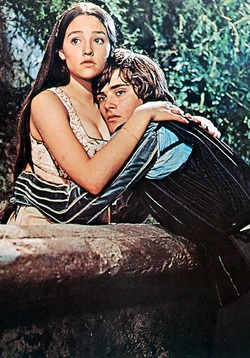 There are many elements of tragedy in Sophocles's play Antigone. The most obvious are the characters dying by their own hand. Eurydice, Haimon, and Antigone all kill them selves. Kreon is taken away, presumable to die. This is the obviously tragic portion. Another instance of tragedy occurs when Kreon fails to realize that he has made the wrong decision when Tyresius tells him. He becomes desperate which is very pathetic and tragic. This play is wrought with death and destruction, but what remains intact throughout is the readers emotional connection with the characters. While you may not fully get behind the character's choice to commit suicide, you can understand why they are doing it. You can feel the emotion that is going behind that decision. The emotional aspect, in my opinion is one of the most important aspects of a tragedy. The ancient play is widely regarded as a classic, and the scene where Haimon and Antigone died actually reminded me a lot of another tragedy: Shakespeare's Romeo and Juliet. There is a lot of death, mostly suicide, in both tales however, you can understand why the events transpire because of the tragic emotion the authors inserted.
My Interpretation of The Tragic Fallacy by Joseph Krutch 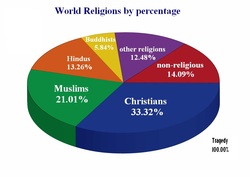 Krutch's writing style is slightly confusing, but from what I could decipher, his goal was to compare tragedy to a religion. “[Tragedy] purges the souls of those who might otherwise despair and it makes endurable the realization that the events of the outward world do not correspond with the desires of the heart and, thus, in its own particular way, it does what all religions do, for it gives a rationality, a meaning, and a justification to the universe.” said Krutch in his essay. He says that tragedy is simply an expression, more specifically an expression of triumph over despair. To Krutch, tragedy is like a religion, it provides a sense of meaning and purpose in life. This meaning and purpose can be interpreted many different ways by many different people, further strengthening the religion analogy. I think what Krutch is implying with his analogy is that tragedy is an important part of human culture. It allows us to connect with the people around us through shared emotion, it allows us to be sympathetic.
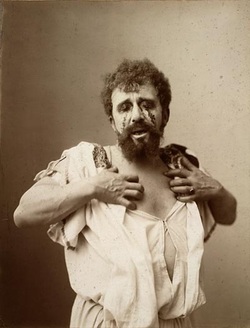 Oedipus the King is a story that explores tragedy in a very interesting way. It takes a man, a king, Oedipus, and his perfect life and strips it away almost instantaneously. As the king of Thebes, Oedipus had a wife, kids, servants, friendly brother in laws, and a palace, however, plague had struck his citizens. Being a righteous man, he attempts to help his people in any way he can. In his search for the salvation of his people, he unearths truths about himself that had been foretold by a prophecy many years prior. The story follows a relatively traditional tragic model. The main character, a hero, is on top of the world, leading his kingdom, and being successful and then it is all stripped away. The hero falls hard. It is an incredibly sad story, however, to connect it to my first blog post, it does produce that "paradoxical" positive reaction among its readers. Oedipus, while being incredibly weird and sad, is very entertaining book. It is simply interesting. The reader empathizes with Oedipus as he is going through his tragedy.
 Today, we watched a Ted talk in class dealing with tragedy. The speaker presented some pretty interesting ideas about tragedy. The speaker's most notable thought, in my opinion, was that tragedy is simply a better alternative to ridicule. Tragedy offers an increased level of sympathy. One might call someone who goes through similar events to Hamlet a loser, however no one would call Hamlet a loser, because his story is presented in a dramatic and tragic manner. It is a better way of presenting ridicule. The speaker was trying to illustrate that point of view, and the way material is presented is often critical in determining how an individual will interpret a situation. Hamlet is a tragedy in addition to being a story about some guy who goes crazy. I think this may not be a part of the definition of tragedy, and it may not be a reason that human's enjoy tragedy, but it certainly elaborates on what a tragic story is capable of doing. It is capable of generating sympathy.
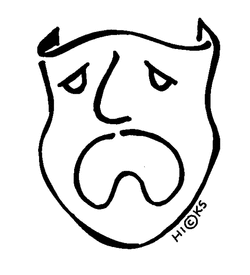 Originating in obscure Greek theaters two thousand five hundred years ago. It is a form dramatic material that exploits human suffering for entertainment value. A rather paradoxical reaction is produced, that is audiences having positive reactions to the negative events they are witnessing. In the theater among other things, tragedy is the opposite of comedy, however elements of both may be present in a single work. Aristotle claimed that tragedy is effective because audiences find relief from their own lives through pity for the characters. In Greece, tragedies were written by Sophecles and Euripidies among many others, and in Europe, the most popular tragedies were written by William Shakespeare. Arthur Miller is perhaps the most iconic tragedy writer of the modern time period. Today the assignment was really designed to give us a dictionary definition of tragedy. We were to solidify in our minds what can be an abstract concept. The information that we found in our brief research can now be used as we explore the idea of tragedy in the future.
|








 RSS Feed
RSS Feed